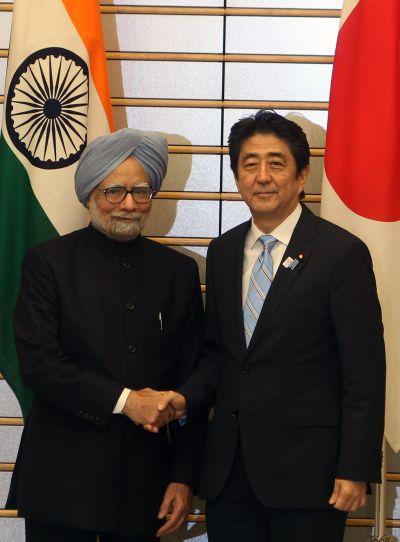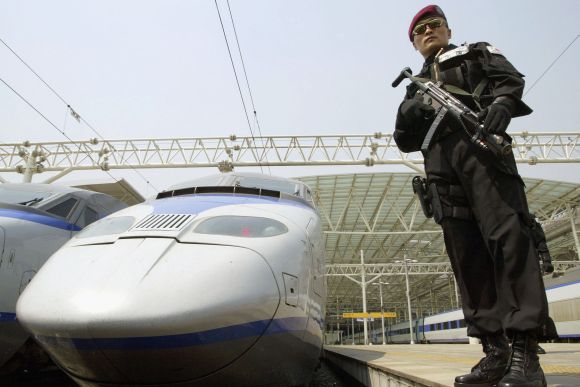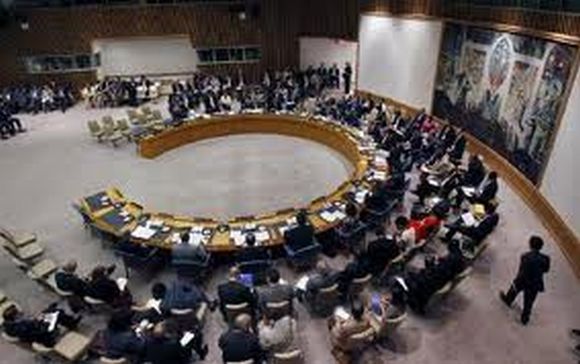Photographs: Courtesy: PIB Vipin Vijayan in Tokyo
Rediff.com's Vipin Vijayan, who is travelling with Prime Minister Manmohan Singh to Japan, reports from the significant bilateral meeting with Japanese Premier Shizo Abe in Tokyo.
Strategic and defence cooperation were high on the agenda when Prime Minister Manmohan Singh met his Japanese counterpart Shinzo Abe in Tokyo on Wednesday.
Following the annual summit meeting, Dr Singh said the two nations attach particular importance to intensifying political dialogue and strategic consultations and progressively strengthening defence relations, including through naval exercises and collaboration in defence technology.
In a joint statement issued following their meeting in the evening, Prime Minister Abe recognised India's sound non-proliferation record. Both sides expressed their commitment to continue to work to prepare the ground for India to become a full member in the international export control regimes: the Nuclear Suppliers Group, the Missile Technology Control Regime, the Australia Group and the Wassenaar Arrangement.
The two sides reaffirmed the importance of civil nuclear cooperation between the two countries, while recognising that nuclear safety is a priority for both governments. In this context, they directed their officials to accelerate the negotiations of an Agreement for Cooperation in the Peaceful Uses of Nuclear Energy towards an early conclusion.
Negotiations on a civil nuclear energy deal between Tokyo and New Delhi were suspended after the powerful March 2011 earthquake and tsunami, which triggered a nuclear crisis in Japan.
Tokyo, though, has found it difficult to ward off stiff opposition from the non-proliferation lobby in the country. Unlike the United States, which acknowledges India as a nuclear State, Japan wants it to first gain entry into international export regimes before a nuclear pact can be inked.
Please ...
Marine, defence cooperation on the cards
Image: A Shin-Meiwa US-2 search and rescue flying boat in a Japanese air basePhotographs: Courtesy: Wikimedia Commons
The two prime ministers decided to further build upon maritime and defence cooperation.
It was decided to establish a Joint Working Group to explore modalities for the cooperation on the US-2 amphibious maritime aircraft for the Indian Navy. The group will assess whether the aircraft fits the Indian requirement and option for co-producing the aircraft. The aircraft can be used for both defence and civilian needs.
The two leaders noted that the ongoing bilateral exchanges on maritime security including counter-piracy activities, participation in bilateral and multilateral exercises as well as sharing of information, and in this context, welcomed the joint exercises between the Coast Guards of India and Japan held off Chennai in January 2012 and in Tokyo Bay in November 2012.
Dr Singh and Abe reiterated their commitment to the freedom of navigation and unimpeded commerce based on the principles of international law, including the 1982 United Nations Convention on the Law of the Sea.
They expressed their expectations to further promote bilateral and unmultilateral cooperation on maritime issues.
Dr Singh told media persons, "Our discussions were guided by the fundamental belief that at a time of global uncertainties, change and challenges, India and Japan are natural and indispensable partners for advancing prosperity in our two countries and for a peaceful, stable, cooperative and prosperous future for the Asia-Pacific and Indian Ocean regions."
"We attach particular importance to intensifying political dialogue and strategic consultations and progressively strengthening defence relations, including through naval exercises and collaboration in defence technology. Cooperation in high technology, space, energy security and rare earth minerals will also add rich content to our strategic partnership," he added.
Please ...
Collaboration on High Speed Railway discussed
Photographs: Chung Sun Jung/Getty Images
Prime Minister Abe reaffirmed that Japan would continue its Official Development Assistance at a substantial level to encourage India's efforts towards social and economic development, including in the area of infrastructure and human resource development.
The two prime ministers welcomed the signing of the Exchange of Notes for loan totalling 71 billion yen for the Mumbai Metro Line-III project, as well as the yen loan of the fiscal year 2012 totalling 353.106 billion yen for eight projects.
Dr Singh appreciated the Abe's pledge for the Campus Development Project of the Indian Institute of Technology, Hyderabad (Phase 2) for 17.7 billion yen and the Tamil Nadu Investment Promotion Programme for 13 billion yen.
"While continuing our development partnership, especially in the infrastructure sector in India, we will also strive to substantially expand the flow of trade and private investment," he said.
Dr Singh noted Japan's interest in supporting the introduction of high speed railway system in India.
Appreciating Japan's high level of expertise in designing and implementing High Speed Railway (Shinkansen) systems, he conveyed that India will plan such projects based on its infrastructure priorities, commercial viability and financial resources.
The two leaders decided that both sides will co-finance a joint feasibility study of High Speed Railway system on the Mumbai-Ahmedabad route.
The two prime ministers, recognising the importance of upgrading the speed of passenger trains on the existing Delhi-Mumbai route to 160-200 kmph (Semi-High Speed Railway system), welcomed the final report of the feasibility study undertaken with Japan's cooperation, and confirmed that further consultation between the two countries would be continued to draw up a road-map.
Please ...
Need for UN reforms re-emphasised
Image: United Nations Security Council in a meetingPhotographs: Reuters
The two prime ministers shared the view that business environment improvement is significant in enhancing bilateral investment and trade which would drive growth of both countries.
In this connection, the two leaders expressed their expectation that both countries would continue to work closely to achieve an enabling predictability and transparency in terms of business environment, including tax administration which is conducive to India-Japan economic cooperation and greater flow of investment, technology and services between the two countries.
They welcomed Japan External Trade Organisation's matching activities later this year to strengthen business partnership and consolidate supply chains between the two countries.
Noting the importance of increasing Japanese investment and business in India for economic growth of both countries, the joint statement said that the two prime ministers expressed their expectation to advance cooperation between the Ministry of Commerce and Industry of India and the Ministry of Economy, Trade and Industry of Japan in the framework of India's "National Manufacturing Policy" in such areas as industrial human resource development and business environment improvement.
The two prime ministers re-emphasised their resolve to work towards early reform of the United Nations, including the expansion of the United Nations Security Council in both permanent and non-permanent categories, particularly through the efforts of the G-4 so as to reflect contemporary geopolitical realities.
They confirmed that such reforms were necessary to make the Security Council more representative, effective, credible and responsive to the needs of its wider membership.
They concurred in continuing to take an active part in the inter-governmental negotiations in the United Nations General Assembly supporting the chair to achieve meaningful progress.
In this regard, they also decided to strengthen their bilateral cooperation and consultation with other member states.
They decided to hold the 1st India-Japan Consultation on UN Issues, including United Nations Security Council reform, soon and confirmed to hold regular consultations twice a year, to further enhance cooperation between the two countries.





article